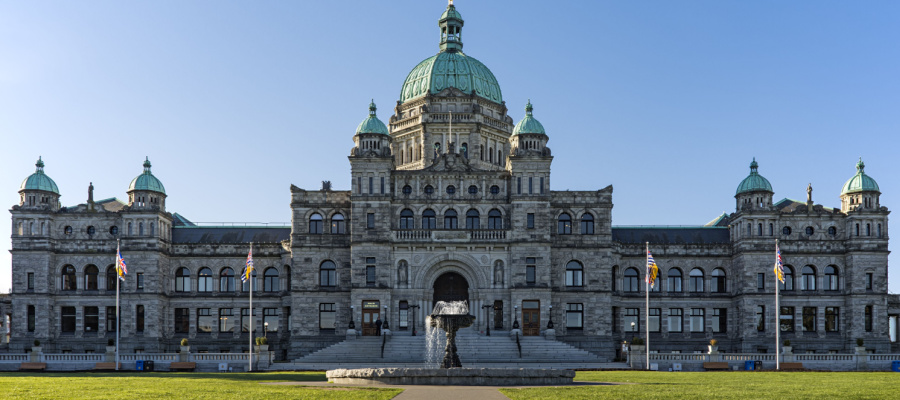Our BC Budget 2019 priorities: Poverty reduction and climate action

In anticipation of the 2019 BC Budget—which the provincial government will present in February—the CCPA-BC is publishing a series of Policy Note posts highlighting the recommendations from our submission to the Budget Consultations. Those recommendations include ideas for improving BC’s health care, education, transit, child care and much more.
Today, I kick off the series by sharing the presentation I made to the Select Standing Committee on Finance and Government Services on October 11, 2018. My presentation focused on two top priorities for Budget 2019: poverty reduction and climate action.
Here’s what I told the Committee.

Thank you for the opportunity to share the CCPA’s recommendations for BC Budget 2019.
The CCPA has a long track record of research and policy analysis addressing BC’s economic, social and environmental challenges, and our recommendations draw on this body of work.
We were pleased to see that Budget 2018 introduced ambitious measures to tackle the housing crisis and set the foundation of a universal, affordable, quality child care system. And we also support the government’s new taxation measures that will help to restore tax fairness in BC. We believe that Budget 2019 should build on this strong start for the new government and introduce ambitious new investments in two key areas: poverty reduction and climate action.
Poverty reduction
We commend the BC government for formally committing to legislated poverty reduction targets. However, we believe the targets—to reduce overall poverty by 25% and child poverty by 50% in five years—should have been more ambitious. Having been laggards on this file for years, BC now has a chance to deliver an ambitious, effective plan that will stand the test of time.
BC has the capacity to not just meet but exceed the legislated targets.
To achieve this, Budget 2019 must introduce significant new measures in the seven core pillars of a comprehensive poverty reduction plan as outlined by the CCPA and the BC Poverty Reduction Coalition. The seven core pillars are:
- adequate income support for the non-employed;
- higher earnings and better working conditions for low-wage workers;
- addressing the needs of groups and communities more likely to be living in poverty;
- ending homelessness and the affordable housing crisis;
- investing in universal, high-quality, affordable child care;
- making training and education more accessible to lower-income British Columbians; and
- addressing gaps in health services for vulnerable populations, including in mental health and addictions services, seniors care and primary care.
Ending deep poverty in BC should be a top priority. This would require social assistance rates to be increased to 75% of the poverty line within two years. We have calculated that such an increase would cost $365 million a year or less than 1% of the provincial budget. While reducing the depth of poverty was not one of the legislated targets embedded in the new BC Poverty Reduction Strategy Act (Bill 39), deep poverty can and should be eliminated in our wealthy province.
Our other top priority area for poverty reduction is housing. We recommend a major investment in low-income housing stock and bold action to control rents. While the government has introduced measures to cool the housing market and invested in new low-income housing, more is urgently needed.
As we have warned before, skyrocketing rental costs represent the greatest threat not only to the poverty reduction plan, but to the government’s overall policy agenda. There is grave risk that all the affordability improvements and gains from increases to the minimum wage and welfare rates, reductions in child care fees and more will be wiped out by unaffordable rent increases throughout the province.
To moderate rental costs and restore affordability, we recommend strengthening rent control by tying it to the unit and not the tenant as is currently the case. The application and enforcement of the Residential Tenancy Act must also be strengthened and we recommend converting the Home Owner Grant into an income-tested housing benefit for both owners and renters.
The BC government should strongly consider Manitoba’s Rent Assist Program as a model for structuring rental subsidies. This program offers the same benefit to people with low incomes in private rental market housing, regardless of whether or not they receive social assistance.
Equally important, British Columbia needs a significantly more ambitious program to build new affordable housing stock in order to raise vacancy rates and improve the balance of power between tenants and landlords.
Climate action
In the wake of the latest alarming UN Intergovernmental Panel on Climate Change report, BC Budget 2019 must get serious about funding the new Clean BC climate plan.
The government’s decision to support LNG Canada’s investment on the north coast is especially troubling as it will be much more difficult for BC to meet its new emissions-reduction targets. Indeed, UBC climate scientist Simon Donner says that reconciling the two is “pretty much impossible.”
Instead of pursuing LNG expansion, we recommend improving and expanding BC’s carbon tax to facilitate new public investment to drive complementary climate actions in the private sector.
We thus recommend that BC reassert its leadership on carbon pricing with new annual increases of $10 per tonne starting in 2019 (currently scheduled to increase by $5 per tonne). This increased revenue would support a more ambitious Clean BC plan by accelerating investments in green infrastructure for the province. Such a plan would include energy retrofits of commercial and residential buildings, large new investments in public transit (including public transportation to Interior and Northern communities), measures to shift to 100% renewable energy, new investments in facilities to process recycled materials so we can become a zero-waste province, sustainable forestry management initiatives and just transition policies to ensure BC resource industry workers and their communities are not left behind.
BC is in a great fiscal position to make strategic public investments to rebalance our economy from its unhealthy reliance on real estate and fossil fuels to a more socially and environmentally sustainable economy in which the benefits of growth are broadly shared with all British Columbians.
**
BC is in a great fiscal position to make strategic public investments to rebalance our economy from its unhealthy reliance on real estate and fossil fuels to a more socially and environmentally sustainable economy in which the benefits of growth are broadly shared with all British Columbians.
Topics: Climate change & energy policy, Economy, Housing & homelessness, Poverty, inequality & welfare, Provincial budget & finance


